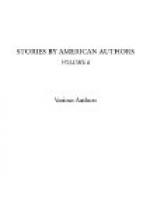“Come on, then; you’ll have to show me where it is. I won’t let you get hurt.”
When we first wheeled into South Eutaw Street, I was conscious of an almost painful stillness, more noticeable after the tumult of confused sounds from which we had just emerged. The houses either side were fast closed, doors and windows Some of them were even unlighted, and not vehicle was in sight. The street was partially unpaved, where new gas-pipes had been laid, and piles of paving-stones were heaped on the edge of the sidewalks. The place seemed deserted.
But presently, far down in the immediate vicinity of the depot, I perceived accumulated a dense, dark mass, like a low-hanging cloud, from which a low hoarse murmur seemed to proceed. It swayed slightly from side to side, with the inevitable motion of a large crowd, while at the same time it kept well within certain bounds. We walked quickly along, block after block, without encountering a single soul. I had been so engrossed with the dark, muttering pulsation in front, that I failed to attend to the sounds from behind, until the boy, jerking my hand, bade me listen to the drum. I heard it then plainly, as soon as he spoke, and the approaching tramp of disciplined feet was soon after distinctly audible. I turned and looked. The Fifth Regiment was marching down the middle of North Eutaw Street, having not yet crossed Baltimore Street, the drum corps in front, the colors flying, and crowding the sidewalks on either hand was a motley van and bodyguard, consisting of street loafers and half-grown boys, who had come along to see the “fun,” and whose sympathies were plainly with the rioters. The foremost of these soon reached the spot where I stood, and as I drew aside to let them pass, I heard a gamin say to his neighbor:
“I say, Bill, these yere putty little soldier-boys hadn’t better make ther las’ will an’ testyment—ain’t it?’”
“I dunno ’bout that,” replied the other, a veteran of fourteen, who was chewing tobacco, and whom I recognized as a certain one-eyed newsboy.
“These yere men hez fought in the late war, yer see, plenty of ‘um, an’ you bet they don’t carry no bokays on ther bayonits.”
As the column advanced, I glanced anxiously toward the human sea down yonder. At first, no additional movement could be detected, then, as the drums approached nearer, a quick stir, like a sudden gust, struck its troubled waters; the hoarse, horrible cry tore raggedly through the summer air. And then I hastily drew the terrified child with me into the shade of a receding doorway—for the mad flood came raving over its bounds toward us.
The mob was mostly composed of men in their working-clothes, with bare arms and gaunt, haggard faces. There were some women among them—wretched, half-starved creatures—who kept shrieking like furies all the time. As the regiment, still moving resolutely onward, approached within a few yards of them, there fell the first volley of stones, accompanied with hoots and jeers of derision.




